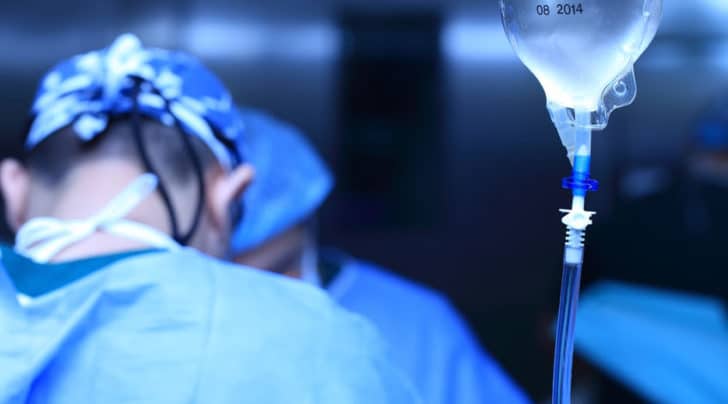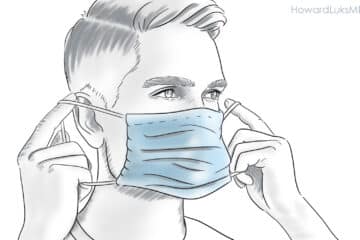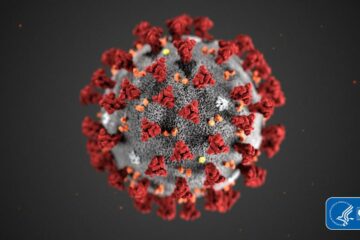
You should have many questions about your non-urgent (elective) surgery during times like these. The term elective surgery is misleading, and I will avoid using it. Certainly, if you have been suffering from terrible pain affecting all aspects of your quality of life, then your decision to have surgery hardly seems “elective.” In preparing for non-emergent surgery, you and your hospital will need to take numerous precautions. You must have a lot of relevant questions. We are going to try and answer them.
There is a serious virus floating around. SARS-CoV-2, the virus which causes COVID-19 is affecting children, it’s resulting in strokes in people under 40, and it’s cutting down many people under 60. Nearly 30% of hospitalized patients for COVID-19 were under 45 years of age. It’s not a disease isolated to the older among us.
Granted, only a small percentage of people become seriously ill, and approximately 0.1-0.5% of people who contract COVID-19 will die from it. That means that your individual risk is small, but it is a non-zero risk, and you need to consider your options carefully.
This doesn’t necessarily mean that you need to put off your surgery. But it does mean that you need to consider your options carefully. Everything we do entails risk. The only surgery without risk is surgery on someone else. COVID-19 adds another significant potential risk factor to the risk: benefit equation. Your assessment of that risk may be different than someone else facing the same choices. This is the hallmark of informed consent. You should be presented with the facts, and the reasonably foreseeable risks… then you can decide on whether or not to proceed with your surgery.
You may live in an area that has been mostly unaffected by COVID-19. Others might be in Queens, NY, which was one of our nation’s most significant hotspots. This will undoubtedly help frame the discussion differently for those of you in various parts of the country, or the globe for that matter.
Tens of thousands of non-emergent surgeries were canceled in the US during the flatten the curve phase we are coming out of. Rescheduling those procedures and clearing the backlog will take a lot of time and effort. But it will require considering an additional layer of risk.
Why was my surgery canceled because of COVID-19?
In many regions of the country, COVID-19 overwhelmed hospital systems. It was all hands on deck just to manage the enormous number of very sick people who came through the emergency rooms. There was also a nationwide shortage of personal protective equipment (PPE). There still is a shortage in many regions. Hospitals needed to have adequate visibility on their supply chain of PPE before considering using them up for non-emergent procedures.
Early on in the pandemic, we found out that people with COVID-19 who had general anesthesia were getting much sicker than those who didn’t have anesthesia. This is another reason why we avoided non-emergent surgery. In fact, this is a reason why you may want to insist on testing before you consider surgery over the next year or two.
Is surgery safe to have at this time?
To a large degree, this will be a regional issue. Some areas of the country still have COVID-19 numbers that are increasing, some have almost no COVID-19 cases, yet some regions have numbers that are steadily going down.
If you live in a region where the numbers are clearly going down or absent, then the risk is lower than if you live in a region where the numbers are increasing. Do your due diligence. If you are comfortable with the fact that the COVID19 epidemic is controlled in your region, then you should start to consider the protocols being put in place to keep you and the team caring for you as safe as possible. Remember, this is not a zero-risk equation.
DO I STILL NEED TO HAVE SURGERY?
Wait, what? Think about it. I have had many video second or third opinions during this lockdown phase. Many people from across the country noted that their shoulder pain or knee pain improved dramatically during this forced eight week time frame. If your pain has improved, you need to speak with your doctor, or perhaps a second opinion of your own. You may not need to have surgery.
We know that many small degenerative rotator cuff tears do not need surgery. We know that many meniscus tears do not need surgery. We know that many arthritic knees and hips might feel better with some rest and appropriate exercise.
So this is a time to revisit the same decision making that initially led you to think if your surgery is still “necessary.” Most orthopedic surgeries are performed to improve your quality of life. In other words, we treat the patient, not the MRI findings. Most “abnormal” or age-appropriate findings on an MRI do not require surgery. Many people play golf and tennis with rotator cuff tears. Many people run and live an active lifestyle with meniscus tears.
I’m not saying that none of you require surgery. I am only asking you to determine if you would make the same decision now that you did months ago based on your symptoms and risks that your surgeon discussed with you.
What protocols and precautions will the surgery center or hospital put in place?
First off, all sterilization techniques kill the SARS-CoV-2 virus. The team that cares for you will be dressed in PPE to protect both you and them. Everyone should probably wear masks at all times — even you should be wearing one.
The staff at your hospital is screened daily. Most of us have been asked to take our temperatures a few times a day. Many hospitals screen their staff with temperature checks when we enter the building.
You will also be screened and probably tested. There is a difference, and we will cover that soon. Once you clear screening and testing, your surgery can proceed. Just keep in mind, there is still a small risk that you can contract the virus from the facility or that you had the virus, and it didn’t show up on testing and screening. If that is the case, then your chance of becoming sick after surgery might be fairly high.
The goal here is to make your surgery as safe as possible. Ask your surgeon what protocols they will have in place to protect you.
What is the difference between screening and testing for COVID19?
Screening starts with a set of questions. The screener will want to know if you have been in contact with someone who is ill, and they will want to know if you feel sick or have lost the sense of smell or taste. They will want to know if you have had any unexplained illnesses recently, or a recent fever. The screening procedure at the hospital will also include taking your temperature. An elevated temperature will result in the cancelation of your surgery and testing to see if you are COVID19 positive.
The screening will take place before your procedure date and on the date of your procedure. This is performed to make sure that no changes have occurred.
Testing. Testing is also very important. Many/most hospitals and surgery centers will insist on COVID19 antigen testing. This is a test that determines if you currently have the virus. They will probably not perform antibody tests to see if you were previously exposed to the virus. Some hospital systems may perform testing, and others won’t. These decisions will be made by your hospital and will likely be in response to your regional COVID19 case numbers. In some instances, your state or local government might insist on testing.
All hospitals and surgery centers will screen you, and all centers may not test you. You should ask ahead of time.
Do you have questions regarding an Orthopedic injury or longevity?
Do you want to talk to an expert who can listen to you for 45-60 minutes and explain the options in detail?
Dr. Howard Luks offers remote guidance sessions to review your X-ray or MRI images and explain your options.
Dr. Luks has also received hundreds of requests for educational sessions on the topics discussed in his book, Longevity Simplified.
What if screening or testing shows an abnormality?
If your screening is positive, then you will be tested. If you test positive for COVID19 and your surgery is non-emergent, then your surgery will be delayed. This is done to protect you and decrease your risk of becoming very sick because of the SARS-CoV-2 virus. Even if you test negative for the virus, your surgery will still be canceled. This is because there are “false negative” cases. You will be able to reschedule your procedure after you test negative for the virus.
When can I reschedule surgery if I test positive?
If you test positive for COVID19, your surgery will be canceled until you test negative for the virus. If you were asymptomatic and didn’t become sick, then as soon as you test negative, you can reschedule your surgery. If you were sick and had a cough, and certainly, if you had to be hospitalized, you may need to wait many months. That’s because this nasty virus can have effects that linger for a long time. Your physician will need to perform heart and lung tests to be sure that you are healthy enough to have surgery.
Can I catch the virus in the hospital or surgery center?
Hospitals have isolated COVID19 + patients away from non-COVID patients. The staff that works with COVID+ patients are often kept separate from staff who cares for non-COVID patients too. The surgery suites and staging areas where you wait before your procedure are carefully cleaned and processed to minimize your risk.
Should I have surgery if I need to stay in the hospital overnight?
Many of you may need to stay in the hospital overnight. Hospitals have isolated COVID+ patients to regions that will limit your exposure. In addition, the staff that works with COVID+ patients will not be rotated over the work with you. Obviously, a procedure that involves an overnight stay is riskier than ambulatory procedures.
Should I quarantine myself before surgery?
These recommendations will vary based upon the level of COVID activity in your region. You should discuss this with the facility or with your surgeon. In any region which still has COVID in the community, you should significantly limit your exposure. After your screening and testing, you should isolate yourself as much as possible. This will limit the risk to you and those who will care for you.











